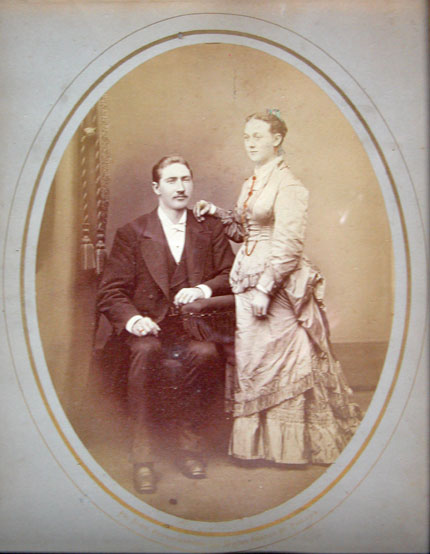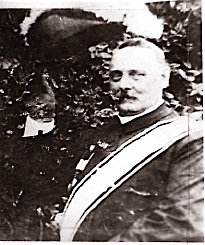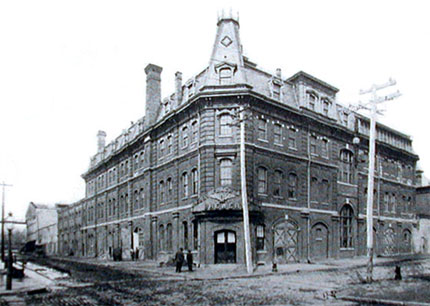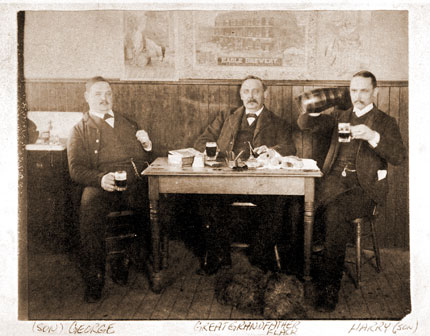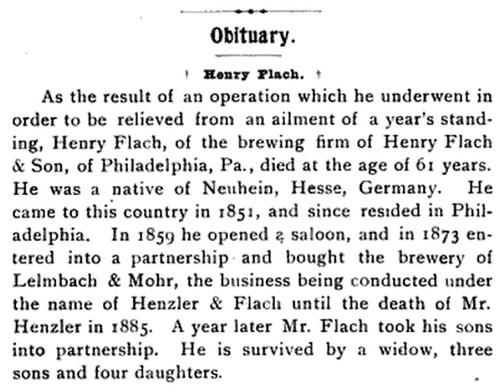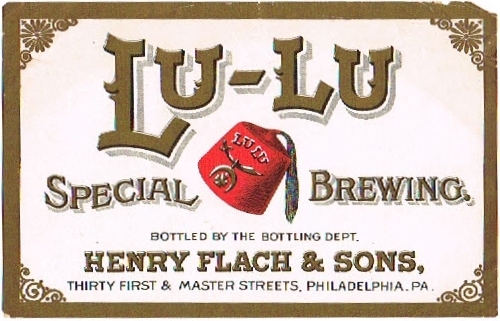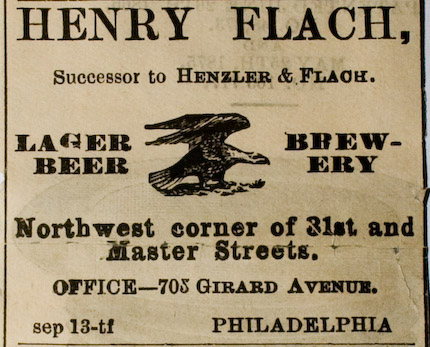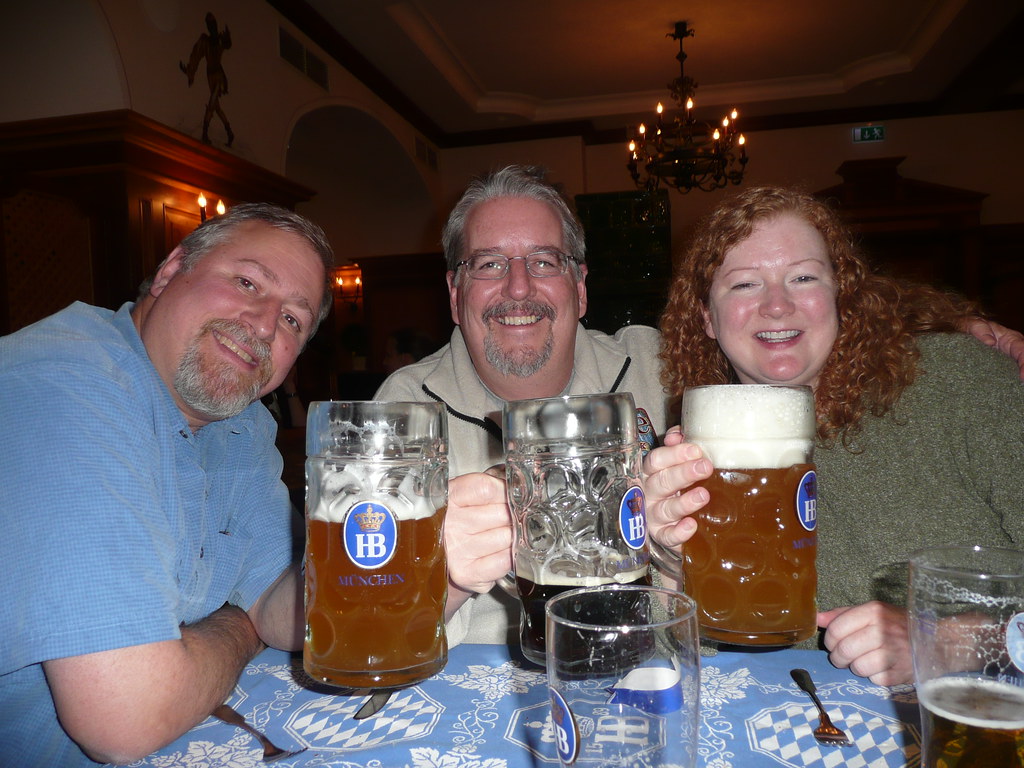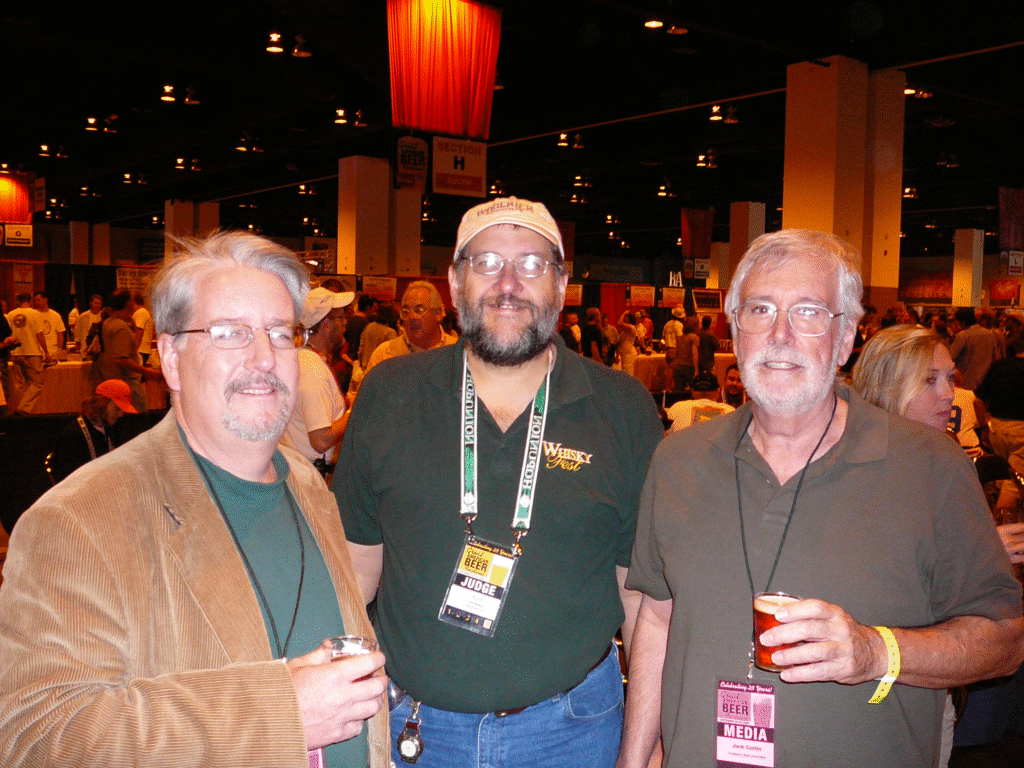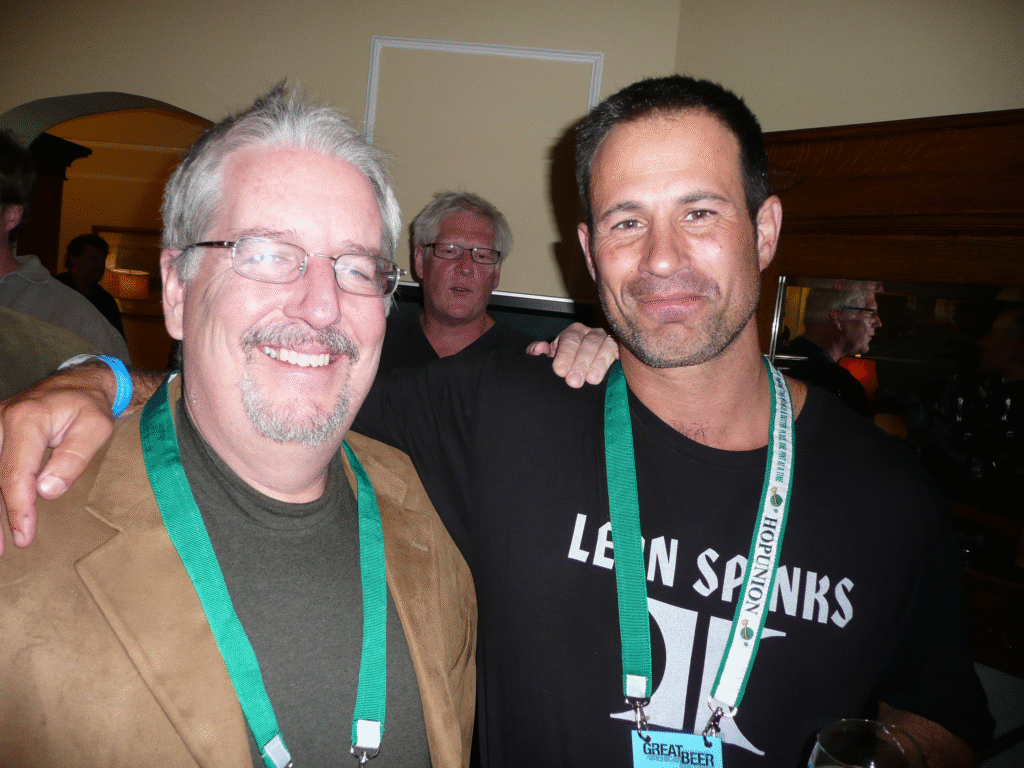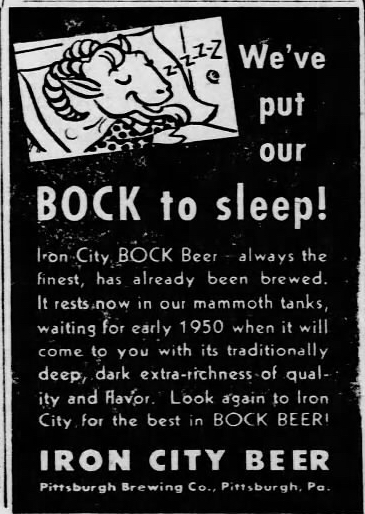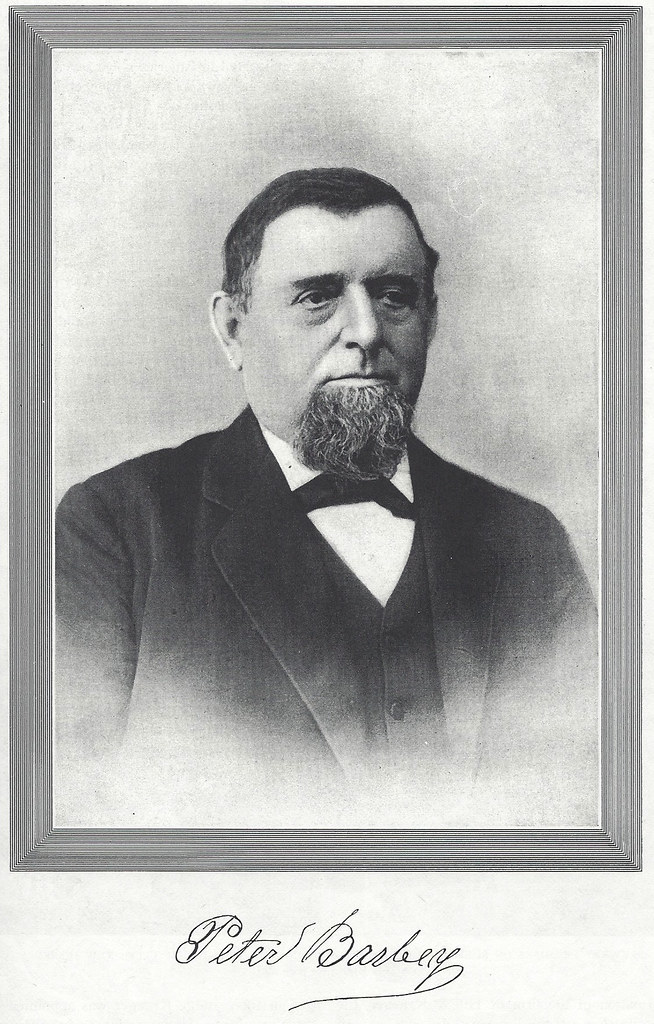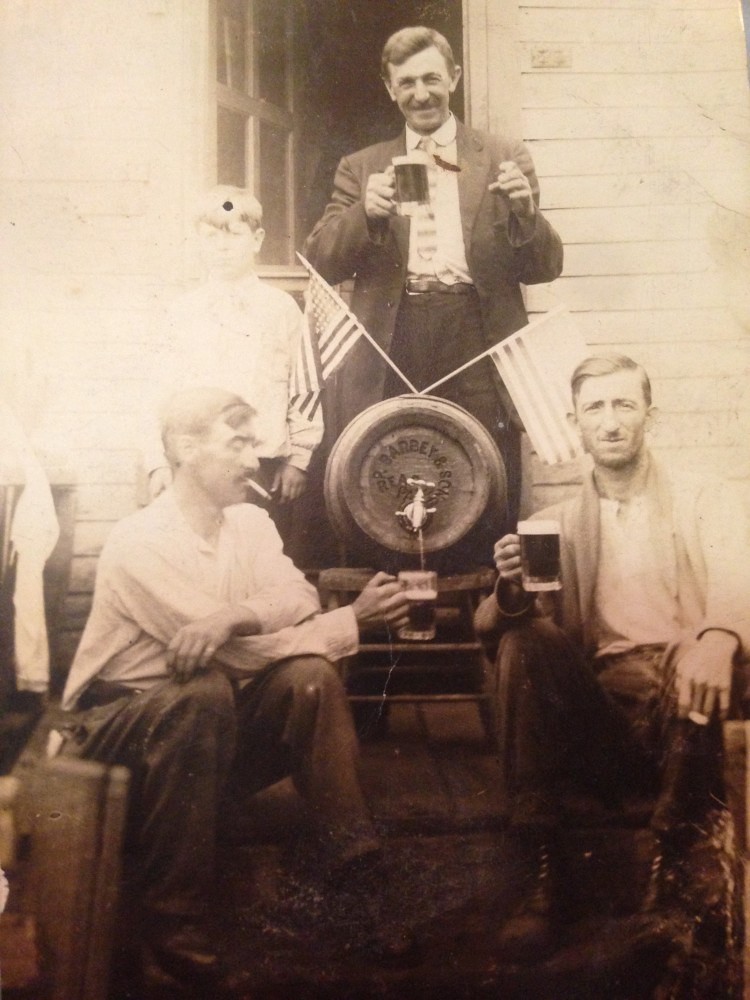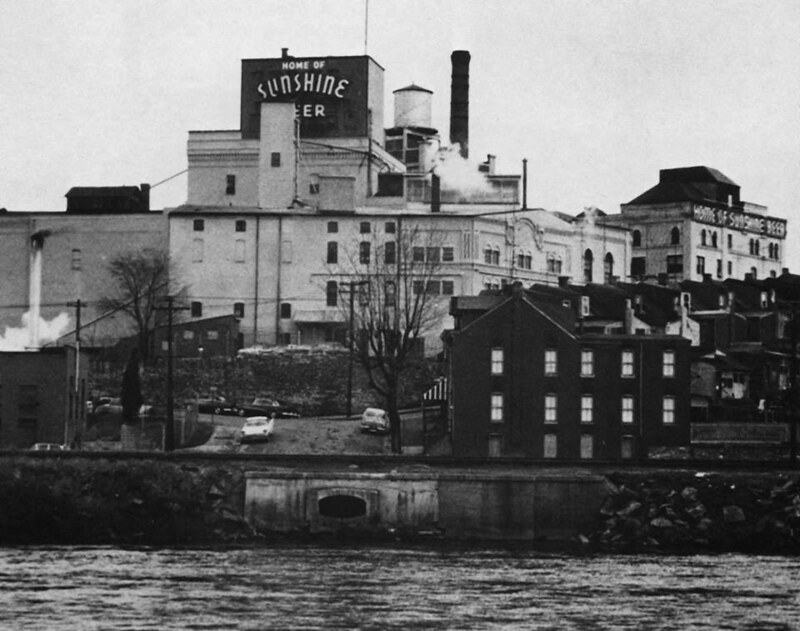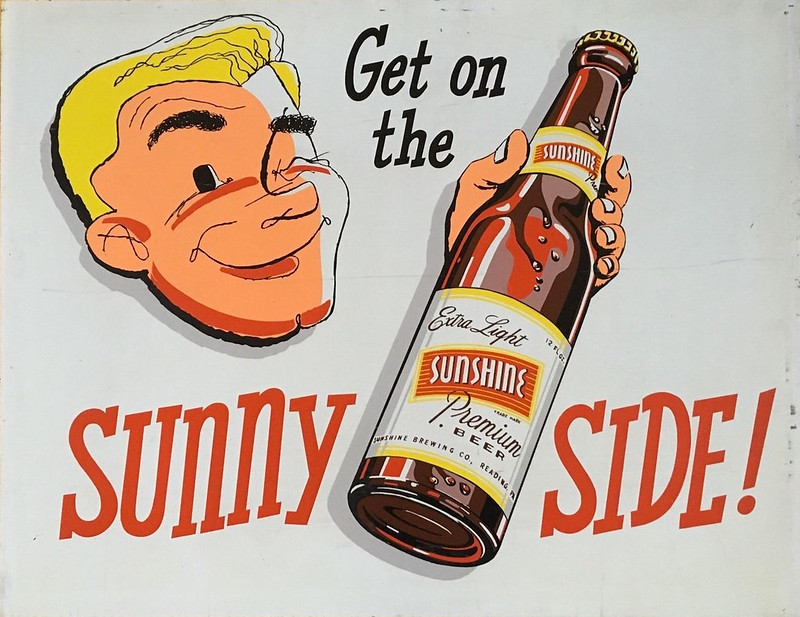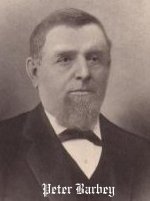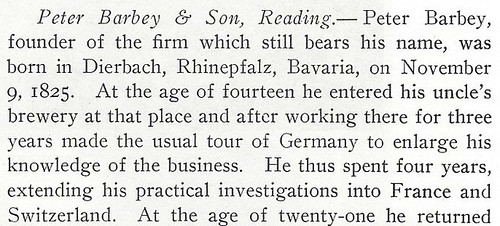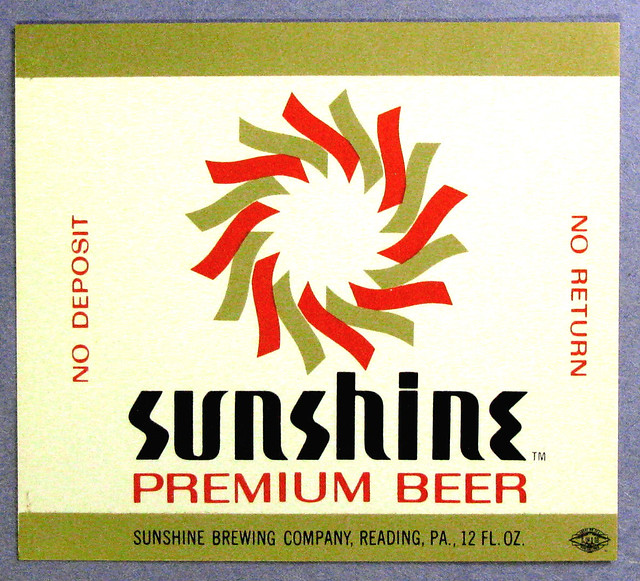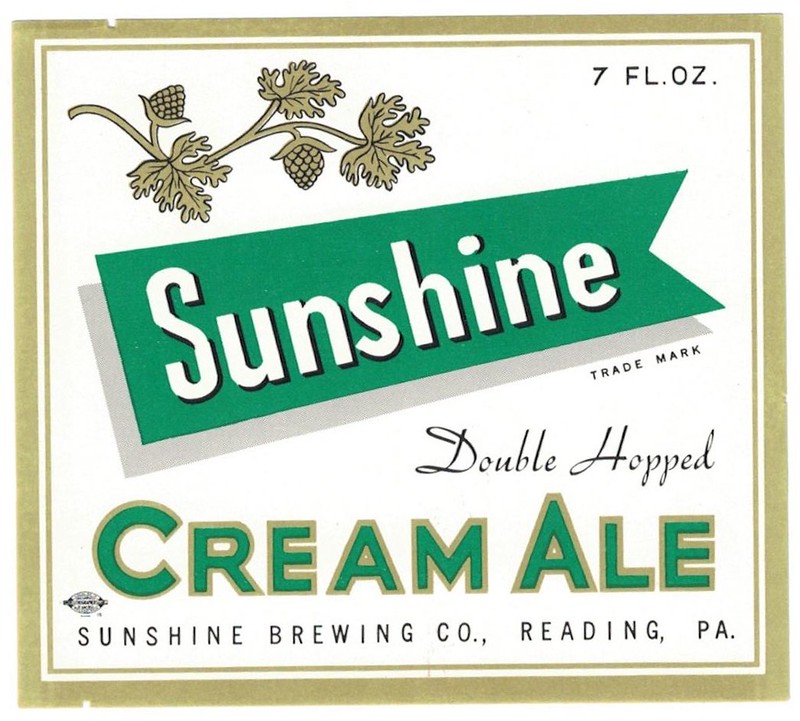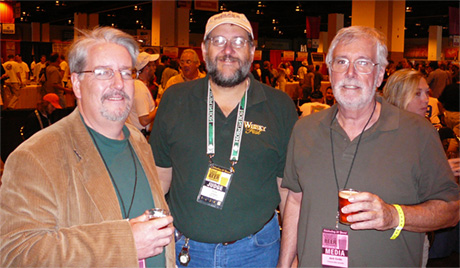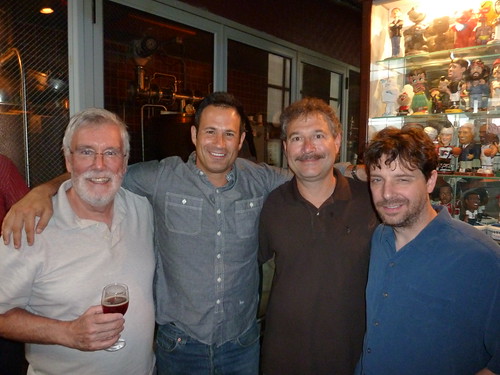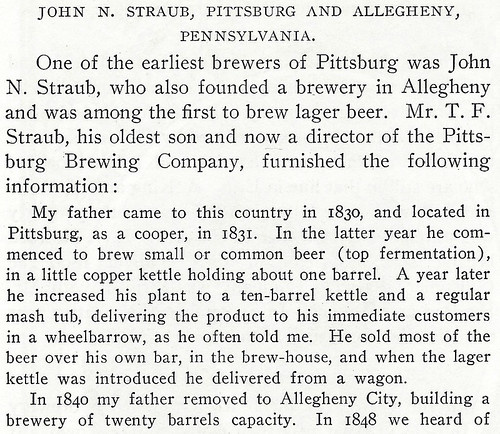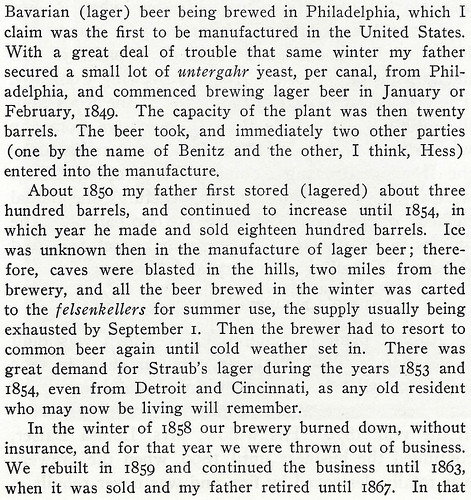
Today is the birthday of Felix Geiger (November 27, 1834-October 6, 1898). He was born in Kappel, Wurttemberg, Germany. After learning to be a brewery in Germany, he emigrated to America in 1854, when he was 20, settling in Philadelphia. After working for several area breweries he became a brewmaster, working at several in Philadelphia, finishing his career with Bergner & Engel.

Here is his obituary from the American Brewer’s Review:
“One of the best known and most popular among the brewmasters and German inhabitants generally of Philadelphia has joined the silent majority. On Oct. 6, Felix Geiger, brewmaster of the Bergner and Engel Brewery for many years departed this life and with him the brewmasters of the city of brotherly love lost one of the most genial companions and active workers in all that interested them.
Felix Geiger was born in 1834 at Kappeln, Wurtemberg. He became a brewers apprentice and worked as a journeyman in German breweries until 1854, when he came to Philadelphia.Here he soon found employment in Carl Fischer’s brewery. Later he worked for Steppaden Brothers, for Conrad Frei and in the so-called “Actien Brewery” until 1857, when he entered the employ of Gustav Bergner as cellar foreman. Seven years later, in 1864, he was employed as a brewmaster in Harry Rothacker’s brewery, later with Engel & Wolf, and a short time with Louis Bergdoll.
In 1871, he was engaged by the firm of Bergner & Engel. In the long term of years he was connected with this brewery he developed great skill and knowledge in his profession, and a rare talent for organization. He was much liked by the employees of the brewery. Mr. Geiger is survived by a widow, three daughters and one son, Joseph, who is president of the George Keller Brewing Company.
The funeral was held Oct. 9, the brewmasters’ association turning out in a body and a large attendance of prominent Germans accompanying the deceased to his last resting place.”

From a Philadelphia newspaper, June 10, 1896.








